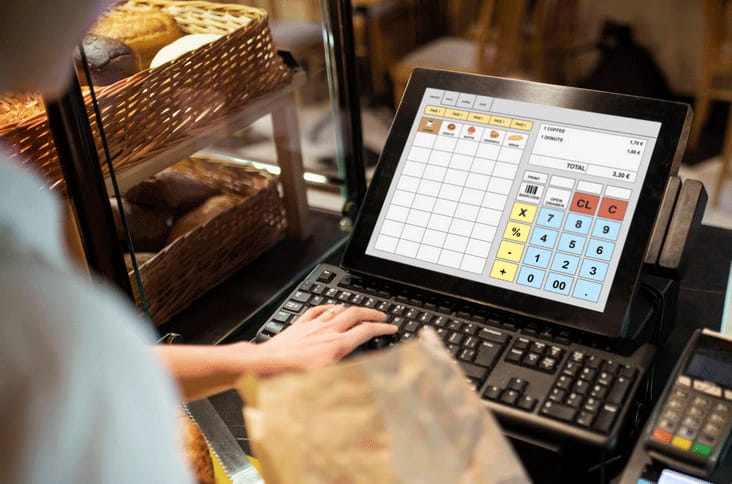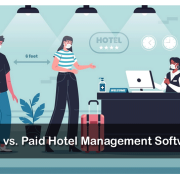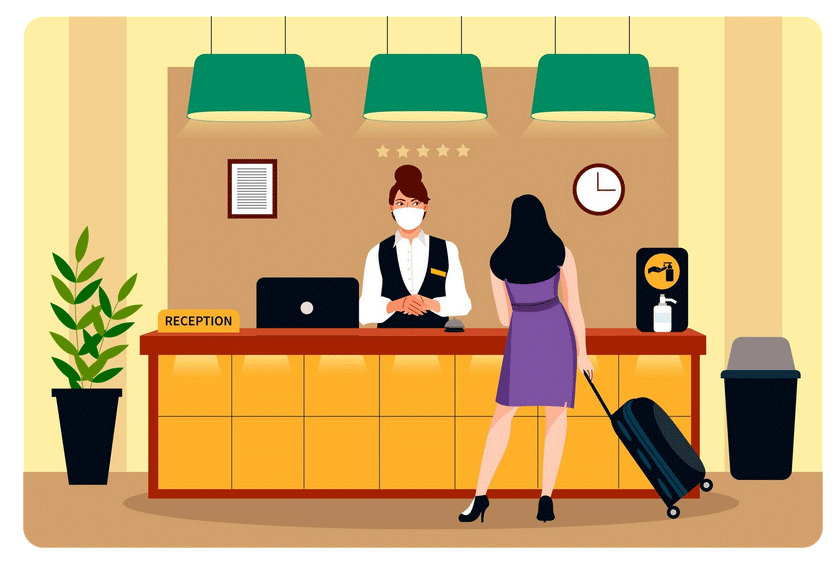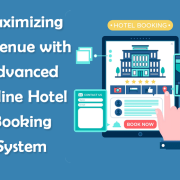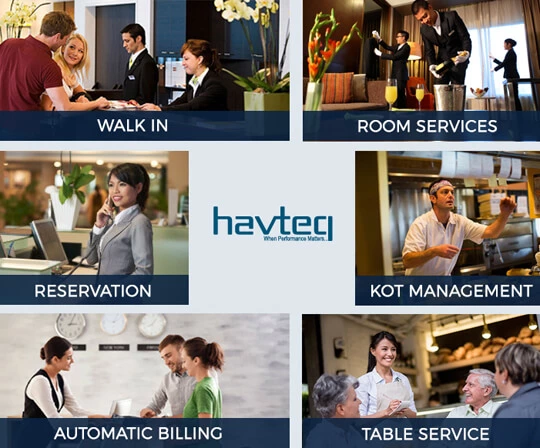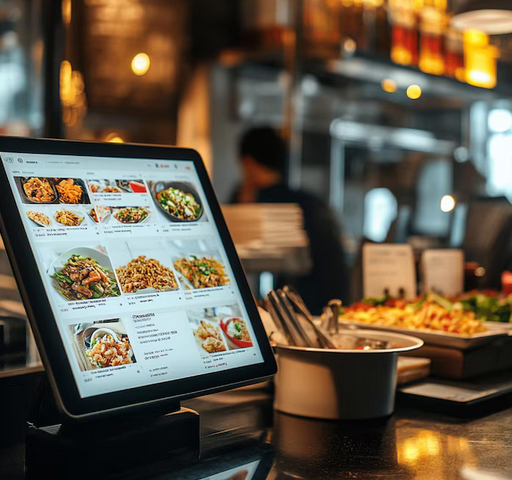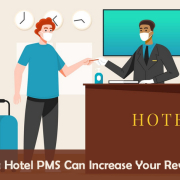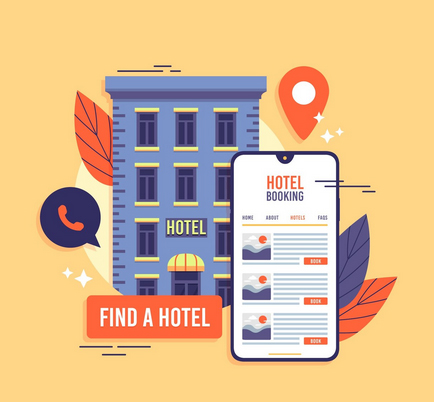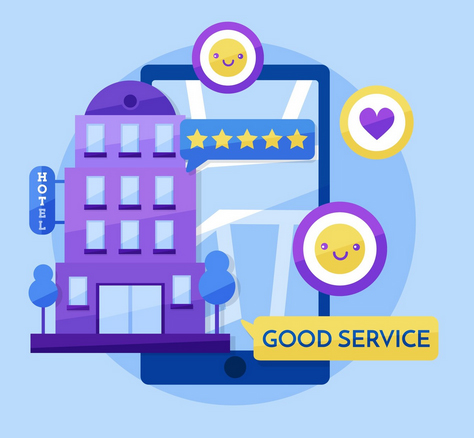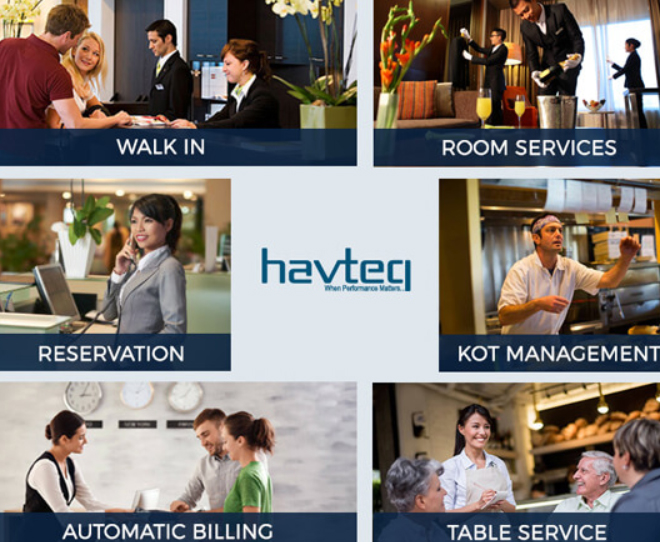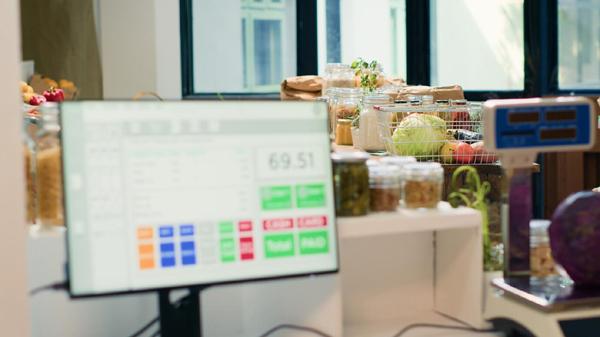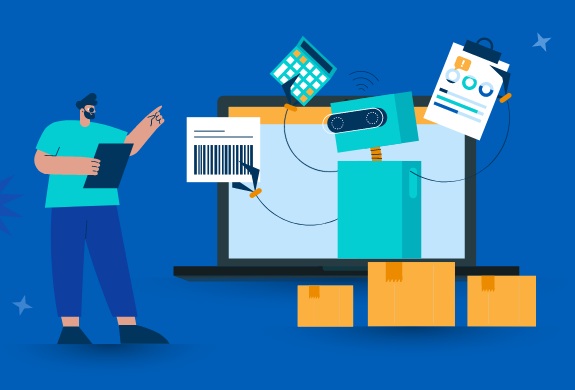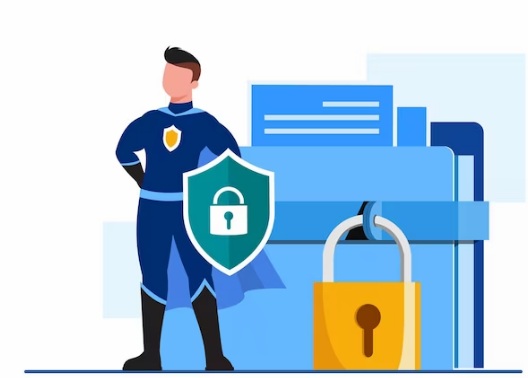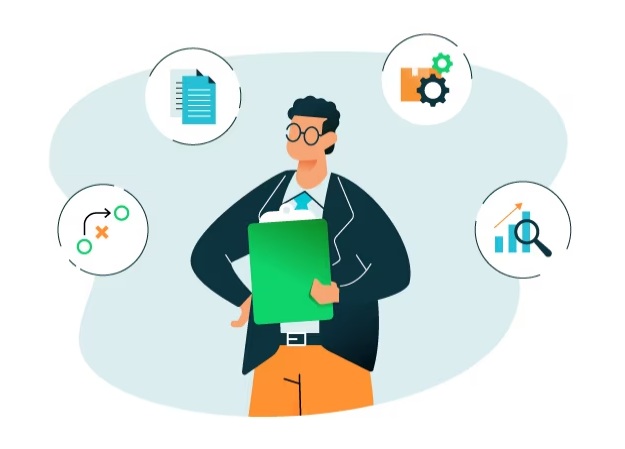Hotel management software is a comprehensive tool designed to streamline and automate the day-to-day operations of hotels, resorts, and other lodging establishments. This software manages reservations, guest check-ins and check-outs, room assignments, billing and invoicing, housekeeping schedules, and other essential tasks. It also provides valuable insights into hotel performance, enabling managers to make data-driven decisions to improve efficiency and guest satisfaction.
Various forms of hotel management software exist, ranging from basic systems handling reservations and billing to advanced solutions integrating with other hotel systems such as point-of-sale, property management, and customer relationship management. Technological advancements have led to the development of cloud-based solutions, mobile apps, and integrations with third-party services, providing a seamless experience for both hotel staff and guests. In the current competitive hospitality industry, hotel management software is essential for hotels of all sizes.
It not only streamlines operations but also enhances the overall guest experience, leading to improved customer satisfaction and loyalty. This article will explore the benefits of using hotel management software, key features to consider when selecting a system, best practices for implementation and integration, and future trends in the industry.
Key Takeaways
- Hotel management software helps streamline operations and improve guest experience
- Benefits include improved efficiency, better guest management, and increased revenue
- Key features include reservation management, housekeeping, billing, and reporting
- Consider factors like scalability, integration, and support when choosing the right software
- Implementation and integration require proper training and support for smooth transition
- Best practices include regular updates, staff training, and data security measures
- Future trends include AI integration, mobile apps, and advanced analytics for personalized guest experiences
Benefits of Using Hotel Management Software
The use of hotel management software offers a wide range of benefits for hoteliers, staff, and guests alike. One of the most significant advantages is the automation of repetitive tasks, such as reservation management, check-ins and check-outs, and billing processes. This automation not only saves time for hotel staff but also reduces the risk of human error, leading to improved efficiency and accuracy in operations.
Another key benefit of hotel management software is its ability to centralize data and provide real-time insights into the performance of the hotel. Managers can access reports and analytics on occupancy rates, revenue, guest preferences, and more, allowing them to make informed decisions to optimize operations and maximize revenue. Additionally, this data can be used to personalize the guest experience, from targeted marketing campaigns to customized service offerings based on guest preferences and behavior.
Furthermore, hotel management software enhances communication and collaboration among hotel staff by providing a centralized platform for sharing information and managing tasks. This leads to improved coordination between departments, faster response times to guest requests, and ultimately a more seamless and enjoyable experience for guests. Overall, the use of hotel management software not only improves operational efficiency but also contributes to higher guest satisfaction and loyalty.
Key Features of Hotel Management Software

When choosing a hotel management software system, it’s essential to look for key features that will meet the specific needs of your hotel or resort. Some of the most important features to consider include reservation management, which allows for easy booking and modification of room reservations, as well as integration with online booking channels to maximize occupancy and revenue. Another critical feature is front desk management, which includes check-in and check-out processes, room assignments, guest profiles, and billing.
This feature should be user-friendly for staff to quickly access guest information and provide personalized service. Additionally, housekeeping management is essential for scheduling cleaning tasks, tracking room status, and managing maintenance requests to ensure a clean and well-maintained property. Furthermore, reporting and analytics are crucial features that provide valuable insights into the performance of the hotel.
Managers should be able to access real-time reports on occupancy rates, revenue, guest satisfaction scores, and more to make data-driven decisions. Integration with point-of-sale systems for food and beverage outlets, spa services, and other amenities is also important for a seamless guest experience and accurate billing processes. Moreover, customer relationship management (CRM) features are valuable for capturing guest preferences, managing loyalty programs, and sending targeted marketing campaigns to enhance guest engagement and retention.
Finally, mobile accessibility and cloud-based solutions are becoming increasingly important features for hotel management software to enable staff to access information from anywhere and provide guests with a convenient mobile experience.
How to Choose the Right Hotel Management Software
Choosing the right hotel management software is a critical decision that requires careful consideration of various factors. Firstly, it’s essential to assess the specific needs of your hotel or resort, including the size of the property, the number of rooms, the types of amenities offered, and the target market. This will help you determine the necessary features and functionalities that the software should have to meet your operational requirements.
Next, it’s important to consider the scalability of the software to accommodate future growth and expansion. The system should be able to handle an increasing number of rooms, guests, and transactions without compromising performance or user experience. Additionally, integration capabilities with other hotel systems such as property management, point-of-sale, and accounting software are crucial for a seamless operation across all departments.
Furthermore, it’s essential to evaluate the user interface and ease of use of the software for both staff and guests. A user-friendly interface will lead to faster adoption by staff and improved efficiency in operations. Additionally, consider the level of training and support provided by the software vendor to ensure a smooth implementation process and ongoing assistance for any technical issues or updates.
Moreover, security is a critical factor when choosing hotel management software, as it will handle sensitive guest information and financial transactions. Look for systems that offer robust data encryption, secure payment processing, and compliance with industry standards such as PCI DSS. Finally, consider the cost of the software in relation to its features and benefits, including any upfront fees, subscription plans, or additional charges for integrations or support services.
Implementation and Integration of Hotel Management Software
The successful implementation and integration of hotel management software require careful planning and coordination across all departments of the hotel. It’s essential to involve key stakeholders from various departments in the decision-making process to ensure that the chosen software meets their specific needs and workflows. Additionally, clear communication about the benefits of the new system and training plans will help staff understand the importance of the transition and feel confident in using the new software.
During the implementation phase, it’s crucial to work closely with the software vendor or implementation team to configure the system according to the unique requirements of the hotel. This may include setting up room categories, rates, packages, amenities, user permissions, and integrations with other systems such as online booking channels or point-of-sale terminals. Testing the system thoroughly before going live is essential to identify any issues or discrepancies that need to be addressed before full deployment.
Furthermore, integration with existing hotel systems is a critical aspect of implementing hotel management software. This may involve connecting with property management systems for room inventory and rates, point-of-sale systems for billing and payment processing, accounting software for financial reporting, and customer relationship management systems for guest profiles and loyalty programs. Seamless integration will ensure that data flows accurately between systems without manual intervention or data duplication.
Moreover, ongoing training and support for staff are essential for a successful implementation process. This may include on-site training sessions, online resources, user manuals, and access to a support team for any technical issues or questions that arise during daily operations. Additionally, regular communication with staff about updates or new features of the software will help them stay informed and engaged in using the system effectively.
Best Practices for Using Hotel Management Software

To maximize the benefits of hotel management software, it’s important to establish best practices for using the system effectively across all departments of the hotel. Firstly, ensure that all staff members are properly trained on how to use the software for their specific roles and responsibilities. This may include front desk staff for check-ins and check-outs, housekeeping staff for room status updates, sales and marketing teams for guest communication, and finance teams for billing processes.
Additionally, establish clear standard operating procedures (SOPs) for using the software to maintain consistency in operations and ensure that all staff follow best practices for data entry, reporting, and guest interactions. This may include guidelines for updating room availability, managing reservations, processing payments, handling guest requests, and accessing reports and analytics. Furthermore, encourage regular communication among staff about any issues or feedback related to the software to identify areas for improvement or additional training needs.
This may involve setting up regular meetings or feedback sessions to address any challenges or suggestions from staff members on how to optimize their use of the software. Moreover, leverage the reporting and analytics capabilities of the software to monitor key performance indicators (KPIs) such as occupancy rates, average daily rate (ADR), revenue per available room (RevPAR), guest satisfaction scores, and more. Use this data to identify trends, opportunities for improvement, and areas where additional training or support may be needed.
Finally, stay informed about updates and new features released by the software vendor to take advantage of any enhancements that can further improve operations or enhance the guest experience. Regularly review your use of the software against industry best practices and seek opportunities for continuous improvement in your hotel’s operations.
Future Trends in Hotel Management Software
The future of hotel management software is evolving rapidly with advancements in technology and changing guest expectations. One significant trend is the increasing adoption of cloud-based solutions that offer flexibility in accessing data from anywhere with an internet connection. Cloud-based systems also provide scalability for hotels of all sizes without requiring significant upfront investment in hardware or infrastructure.
Another trend is the integration of artificial intelligence (AI) and machine learning capabilities into hotel management software to automate repetitive tasks such as pricing optimization, personalized guest recommendations, chatbots for guest inquiries, and predictive analytics for demand forecasting. These AI-driven features can enhance operational efficiency while providing a more personalized experience for guests. Furthermore, mobile accessibility will continue to be a significant trend in hotel management software as guests increasingly expect seamless interactions through their smartphones.
Mobile check-in/check-out capabilities, digital key access to rooms, mobile concierge services, and personalized notifications based on guest preferences are becoming standard features in modern hotel management software. Moreover, data security will remain a top priority in future hotel management software developments as hotels handle an increasing amount of sensitive guest information. This may include advancements in data encryption technologies, secure payment processing solutions, compliance with global data protection regulations such as GDPR or CCPA, and proactive measures against cyber threats.
Finally, sustainability initiatives will play a more significant role in hotel management software as hotels seek ways to reduce their environmental impact through energy efficiency monitoring, waste management solutions, eco-friendly purchasing recommendations, and tracking sustainability metrics in reporting tools. In conclusion, hotel management software is an essential tool for modern hotels and resorts to streamline operations, enhance guest experiences, and make data-driven decisions for improved performance. By understanding the benefits of using hotel management software, key features to look for when choosing a system, best practices for implementation and integration, and future trends in the industry; hoteliers can make informed decisions about selecting a system that meets their specific needs while staying ahead of industry developments.
If you are interested in streamlining operations in the hospitality industry, you may also want to consider implementing an Environmental, Health, and Safety (EHS) management software. This type of software can help hotels and resorts ensure compliance with regulations, track incidents, and manage risk effectively. To learn more about the best EHS management software options, check out this article from Havteq.
FAQs
What is hotel management software?
Hotel management software is a system that helps hoteliers manage their day-to-day operations, including reservations, check-ins, check-outs, billing, and other administrative tasks. It can also include features for managing housekeeping, maintenance, and guest services.
What are the key features of hotel management software?
Key features of hotel management software typically include reservation management, room assignment, guest check-in/check-out, billing and invoicing, reporting and analytics, housekeeping management, and integration with other systems such as point of sale and accounting.
How can hotel management software benefit a hotel business?
Hotel management software can benefit a hotel business by streamlining operations, improving efficiency, enhancing guest experience, increasing revenue, and providing valuable insights through reporting and analytics. It can also help in managing inventory, reducing errors, and automating repetitive tasks.
What types of hotels can use hotel management software?
Hotel management software can be used by a wide range of hotels, including independent hotels, boutique hotels, bed and breakfasts, resorts, and chain hotels. It can be tailored to meet the specific needs of different types and sizes of properties.
What should hoteliers consider when choosing hotel management software?
When choosing hotel management software, hoteliers should consider factors such as the size and type of their property, their specific operational needs, budget, ease of use, integration with other systems, customer support, and scalability for future growth. It’s important to select a solution that aligns with the hotel’s unique requirements.
